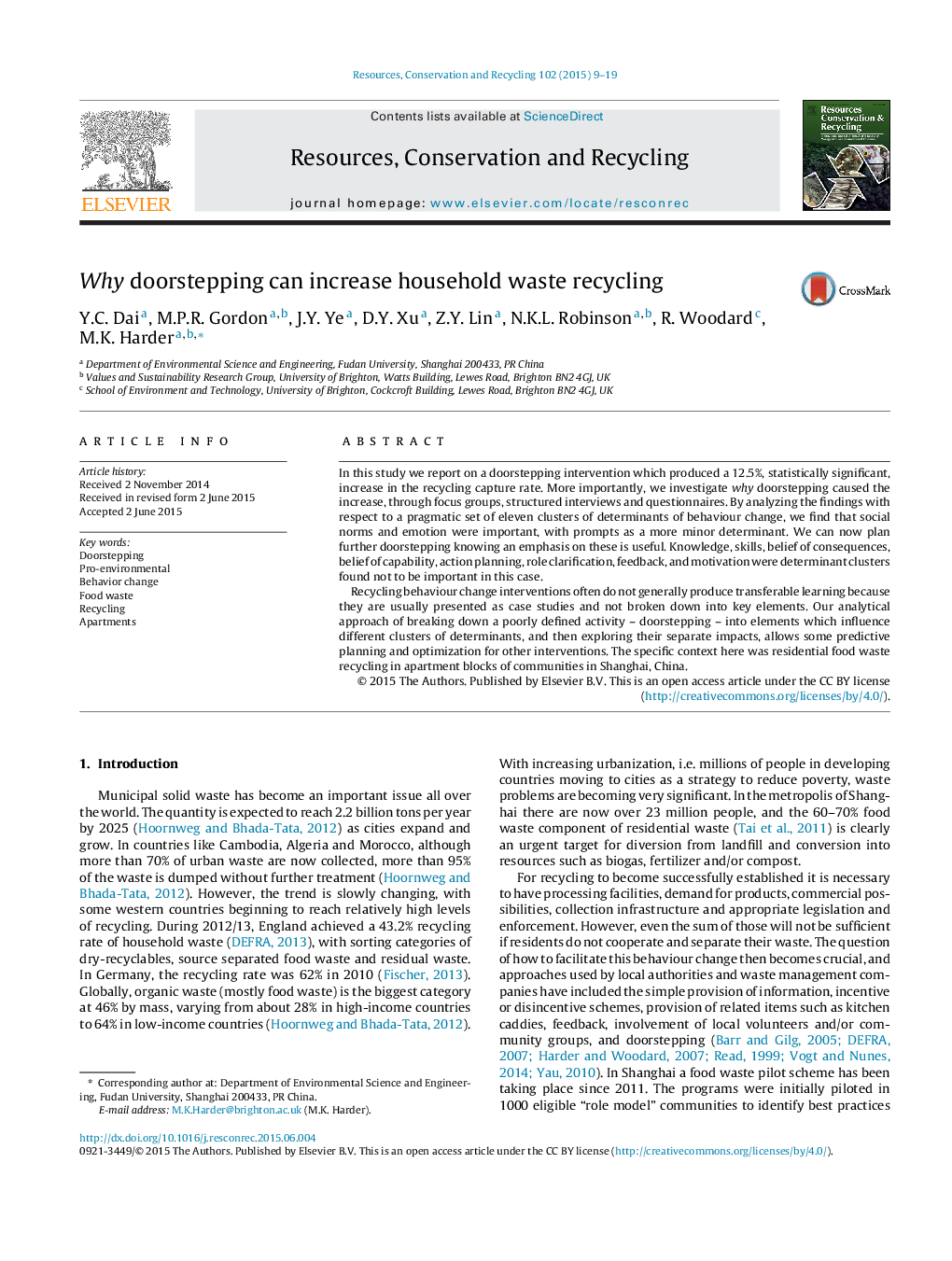| Article ID | Journal | Published Year | Pages | File Type |
|---|---|---|---|---|
| 7495067 | Resources, Conservation and Recycling | 2015 | 11 Pages |
Abstract
Recycling behaviour change interventions often do not generally produce transferable learning because they are usually presented as case studies and not broken down into key elements. Our analytical approach of breaking down a poorly defined activity - doorstepping - into elements which influence different clusters of determinants, and then exploring their separate impacts, allows some predictive planning and optimization for other interventions. The specific context here was residential food waste recycling in apartment blocks of communities in Shanghai, China.
Related Topics
Physical Sciences and Engineering
Energy
Renewable Energy, Sustainability and the Environment
Authors
Y.C. Dai, M.P.R. Gordon, J.Y. Ye, D.Y. Xu, Z.Y. Lin, N.K.L. Robinson, R. Woodard, M.K. Harder,
